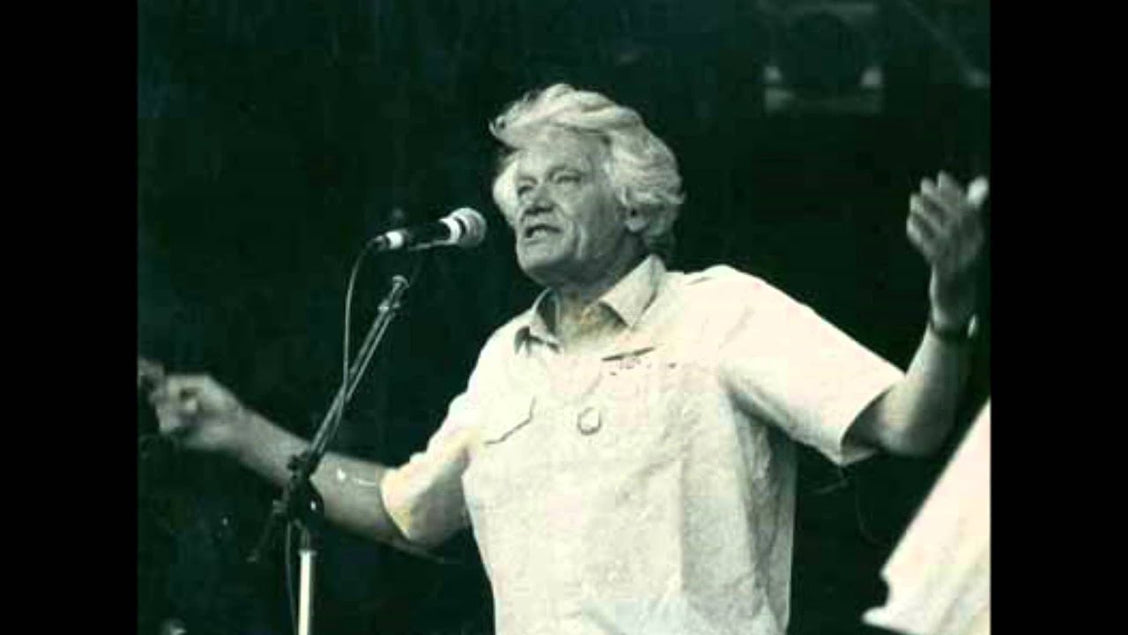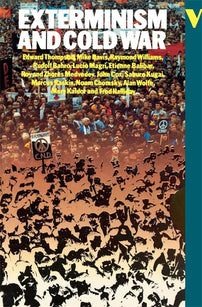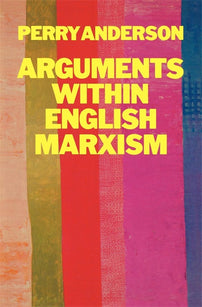E.P. Thompson, Maker of History
Though E.P. Thompson is recognized as one of the 20th century's great historians, during much of his life, "the writing of history took a back seat to the actual making of history." For the centenary of Thompson's birth, Julian Harber reflects on the lesser-known Edward as teacher and political activist.

I was still at school when The Making of the English Working Class was published. And though I was studying for A Level history and had an excellent teacher who was more up to date than many – introducing us, for instance, to the work of George Rudé on the French Revolution – no mention was made of Edward Thompson.
For this I had to wait for my first year at Essex University. And here my initial encounter was not with The Making as it has come to be called, but with two other of Edward’s works – The Peculiarities of the English published in the Socialist Register in 1965 and the seminal article History from Below published in a special issue of the Times Literary Supplement in April 1966 entitled “New Ways in History.” Both were a revelation. The first because it offered an interpretation of eighteenth-century English history that made sense to me; the second because it championed an approach to history quite different from much of the then-prevailing orthodoxy. I heard, of course, about The Making, but priced at 73/6d – a huge sum in those days – it was way beyond what students usually spent on a single book.
I first met Edward himself together with his wife Dorothy in the kitchen of a Welsh farmhouse just after Christmas 1966. Some months later I did spend that 73/6d and remember reading it from cover to cover, staying up most of the night to do so. My acquaintance with the Thompsons was renewed in June 1967 when I attended a Workers’ Control Conference in Coventry where Dorothy noticing me in the audience passed me a note enquiring whether I needed a bed for the night – a typical example of their legendary hospitality. Having arrived with a sleeping bag but no actual accommodation it was a welcome offer. And the beginning of a friendship which lasted down to Edward’s death in 1993 and Dorothy’s in 2011.
In 1969 Edward encouraged me to apply for the MA in Labour History offered by the recently established Centre for the Study of Social History at Warwick University of which he was the director. It was here that I encountered Edward as a teacher. As a lecturer he was superb, but what I remember most was first his ability to prompt his students to explore new sources and ask new questions and secondly the post-graduate seminars he ran and often chaired. These seminars featured a wide range of speakers even on one occasion W.H. Mainwaring the last surviving author of The Miners Next Step published in 1912. But, for me, the best of these were those which brought together a remarkable collection of PhD students researching into eighteenth-century English history; members of what became known simply as the Crime Group. These students would disappear for weeks on end – sometimes to what was then the Public Record Office, but mostly into local Record Offices delving into criminal records as well as the estate papers of the aristocracy; those who Edward called in 1965 the “great Mafiosi” and then returning with new informations and new interpretations which would then be debated with Edward rarely intervening until right at the very end and then with new insights and posing new questions. Much of this found its way into Albion’s Fatal Tree and Edward’s Whigs and Hunters published simultaneously in 1975. You can get some idea of the excitement of it all from the three introductions to the new edition of Albion’s Fatal Tree published in 2011. Overall, as James Hinton, one of the staff contributors to the Centre programme, said to me later: what you got under Edward was a glimpse of what a university history department could and should be about.
But it was only a glimpse for as is well known Edward with his background in university extra-mural teaching was never happy at Warwick. He had, it appears, been lured there with the promise of the university acquiring the archives of the then-closed Felltrinelli Institute – a promise that was never fulfilled, but it was his experience of the politics and ethos of the university that led him to resign his post. You can find his critique of the place in his contribution to Warwick University Limited.
In 1975 I was appointed WEA tutor/organiser for the newly created Metropolitan Borough of Calderdale centred here in Halifax where Edward had lived from the late ‘40s until his departure for Warwick, my job being extended later to take in the neighbouring authority of Kirklees whose largest towns are Huddersfield and Dewsbury. And soon all those place names in The Making which, to a southerner like myself, sounded so strange when I first read them – Cleckheaton, Gomersall, Heckmondwike, Heptonstall and the town where I now live, Mytholmroyd, just became familiar and normal.
[book-strip index="1"]
But the world of adult education in which Edward had taught and had learnt so much from his students had by 1975 changed out of all recognition. He had been employed not by the WEA as some commentators (including some in the WEA itself) have supposed but by the Extra-Mural Dept of Leeds University, though many of his students were from the WEA and were in what were then known as Joint-Committee classes. But by 1975 working class students of working age were drawn not to non-accredited classes on history and Edward’s equally important teaching subject of English literature, but to access classes and the Open University. And day-release classes for trade unionists were now for training shop-stewards and safety representatives in the nuts and bolts of industrial relations. There were still some WEA students who remembered Edward - I can recall Mrs Skirrow of Keighley telling me how inspiring his day schools had been, but such students were all by then well into retirement.
I should also report that I found there were still echoes in the Halifax labour movement of the left-right conflicts that stemmed from Edward and Dorothy’s time in the town. Their house was in Siddal - a largely working-class community here on the edge of Halifax. But this was also the home village of Sara Barker who had risen from secretary of the Halifax Labour Party to be the party’s Assistant National Agent. A ferocious anti-communist and cold-war warrior, she cast a long shadow not just nationally but locally and regionally. And bitter conflicts over such matters as the Korean War, German rearmament and the so-called Kenya Emergency had led in 1955 - to a large number of activists encouraged by Edward and Dorothy to leave the Halifax Labour Party to join the Communist Party – a party which of course Edward and Dorothy were to leave themselves a year later. The conflicts had continued during the first phase of CND, Sara Barker having by then become National Agent (Gaitskell it should be remembered was a Leeds M.P). I am told when Edward subsequently applied to join the Halifax Labour Party, the matter went all the way up to the NEC.
As can be gathered from all this, Edward’s commitment to anti-imperialist struggle, peace and disarmament was long-standing. And it was his knowledge of what had then been part of the West Riding that led him to choose Bradford for the first public meeting of European Nuclear Disarmament in 1980, a conscious copy of the meetings held there and in Leeds in 1958 addressed by A.J.P. Taylor, J. B. Priestley and Trevor Huddlestone that had launched CND in Yorkshire. That of 1980 was also an extraordinary meeting that had to move halls such was the size of the attendance.
Thereafter, Edward was plunged into a whirlwind of article writing, committee meetings and public speaking in Britain and in Europe from Reykjavik to Barcelona and even amazingly enough for the time in Budapest. It was only interspersed with the semesters of teaching in the United States that were needed to pay for day-to-day living. To give you some idea of the frenzy of it all; on our way to the west country during the height of the this second wave of CND, my partner Jill Liddington and I stayed overnight at the Thompson’s house in Worcester, Dorothy being away in the US teaching. Here we found the house somewhat in chaos. For Edward had turned the normally spotless dining room into a second study (or was it as Jill remembers a third?) with papers and correspondence from all over the world strewn across the dining table and onto the floor. We were provided with supper, but had to make our own breakfast. Edward, having left before dawn, was already in Frankfurt.
For most of this time, the writing of history took a back seat to the actual making of history. And this was followed by Edward’s mounting illness from the late eighties onwards. But Customs in Common eventually appeared in 1991 followed just before his death by Alien Homage, which explored his father’s relationship with the Bengali poet Tagore. His study of William Blake Witness against the Beast was published posthumously to widespread acclaim.
In the postscript to The Making published in 1968 Edward justified his lengthy rebuttals of various attacks on his work by his (mostly conservative) critics with the following: “The Hammonds, in their lifetime, turned towards their critics a gentle cheek of silence; and after that they were dead……But I am neither genteel nor, as yet dead. If I have answered with asperity, it is in the interests of the history itself.”
[book-strip index="2"]
But fighting beyond the grave is another matter. In his obituary of Edward, Eric Hobsbawm noted that “In the 1980s Thompson was the most widely cited 20th century historian in the world according to the Arts and Humanities Citations Index and one of the 250 most frequently cited authors of all time.” As I understand it this citation index now takes a different form, but whatever its current manifestation is, I would imagine the situation is now much changed as history has gone in other directions. Some of these directions Edward would I am sure have welcomed, but much else he would have seen as a retreat and in particular a retreat from matters that were his central concern – understanding and reporting the experiences, cultural resources, resistances and struggles of ordinary people against the rich and powerful. His work could only have been written by someone who believed or at least hoped that the world could have a radically more democratic and equal future. The steep decline in such a belief – both in its revolutionary and in its social-democratic versions – is the backdrop to this retreat. The extent to which his work is now neglected, out of favour or dismissed as romanticism is at least partially a reflection of the political ascendancy of those who Edward regarded as the enemy.
Shortly before his death I was doing some weeding with Edward in his beloved garden at Worcester when he lamented how much work there was to be done and how short life was. Had he lived another decade or so, I am sure much more would have come from his pen. And the fact that he did not is our loss.
Julian Harber
Mytholmroyd
31 January 2024

